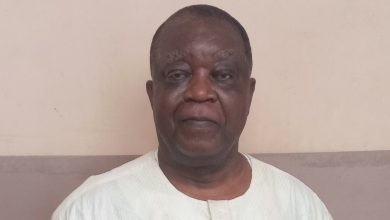Army promotes 105 senior officers to strengthen defence leadership

The army council has approved the promotion of senior officers of the Nigerian Army to the ranks of major general and brigadier general as part of efforts to reinforce the nation’s defence leadership architecture.
Appolonia Anele, acting director of army public relations, said in a statement on Friday that the council approved the promotion on Thursday.
Anele said 28 grigadier generals were elevated to major general, while 77 colonels were promoted to brigadier general.
Among those promoted to major general are Brigadiers O. Adegbe of the Defence Intelligence Agency; S.M. Uba, Director of Defence Information; R.E. Hedima, Acting Chief of Military Intelligence (Army); and R.T. Utsaha, Deputy Director of Defence Operations.
Others include Brigadiers A.M. Umar, Commandant of the Warrant Officer Academy, S. Sulaiman, Deputy Military Secretary (Army); I.O. Bassey, Director of the Nigerian Army Operations Centre; and C.A. Ekeator of the Nigerian Army School of Electrical and Mechanical Engineering.
Also elevated are Brigadiers S.Y. Yakasai, Acting Director of Procurement in the Office of the Chief of Army Staff; W.L. Nzidee of the Army Headquarters Department of Logistics; S.A. Emmanuel of the Nigerian Army Signals; and S.S. Tilawan, Acting Commander of Sector 3, Joint Task Force, North-East Operation HADIN KAI.
Others include Brigadiers M.O. Agi, Desk Officer for TETFund at the Nigerian Defence Academy; I.M. Abbas, Commander 34 Brigade; and the late Brigadier Z.A. Saidu, who was promoted posthumously.
The officers promoted from Colonel to Brigadier General include Colonels Y. Ibrahim of the Nigerian Army Resource Centre; N.N. Gambo of the Department of Civil-Military Affairs; and A. Saidu of the Nigerian Army Finance Corps.
Others are Colonels A. Ali of Army Headquarters Garrison; I. Waziri from the Office of the Chief of Defence Staff; M.M. Sani of the Armed Forces Command and Staff College, Jaji; A.A. Alkali of the Nigerian Army Dog Centre; A.O. Ndah of the Department of Army Training; and I.B. Sheriff of Headquarters 9 Brigade.
Additional promotions include Colonels K.R. Apata of the Provost Group; M.K. Akpuogwu of Operation Whirl Stroke; P.U. Nnaji of the Army Operations Monitoring Support Team; M.T. Nagudu of the Nigerian Army Armour School; and K.O. Bukoye, Commander 401 Special Forces Brigade.
Also promoted are Colonels O. Adole of the Nigerian Army Medical Corps; J.A. Ikagba of 68 Nigerian Army Reference Hospital; D.C. Ibeh of 8 Division Medical Services and Hospital; G.S. Chohwore of 44 Reference Hospital; O.G. Okoye of the Nigerian Army Reference Hospital; and Y.K. Audu of the Joint Task Force North-East Operation HADIN KAI, among others.
Congratulating the newly promoted officers, Waidi Shaibu, the chief of army staff (COAS), urged them to justify their elevation through strengthened professionalism and exceptional leadership.
He tasked them to inspire their subordinates by personal example and adopt bold, innovative and unconventional strategies to counter the country’s evolving security challenges.
The COAS further reminded the officers of their duty to uphold their oath of allegiance without compromise, stressing that their loyalty to the Constitution of the Federal Republic of Nigeria must remain absolute and unquestionable.





